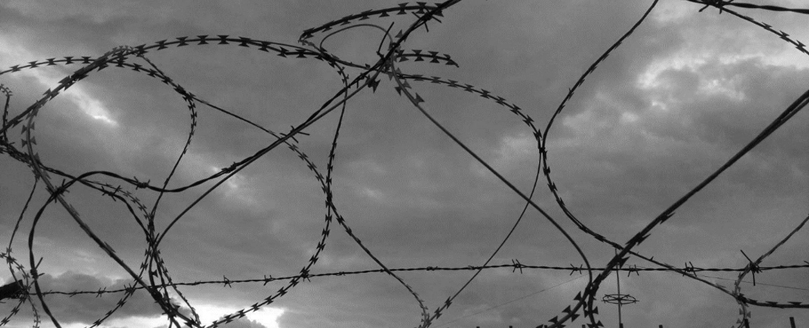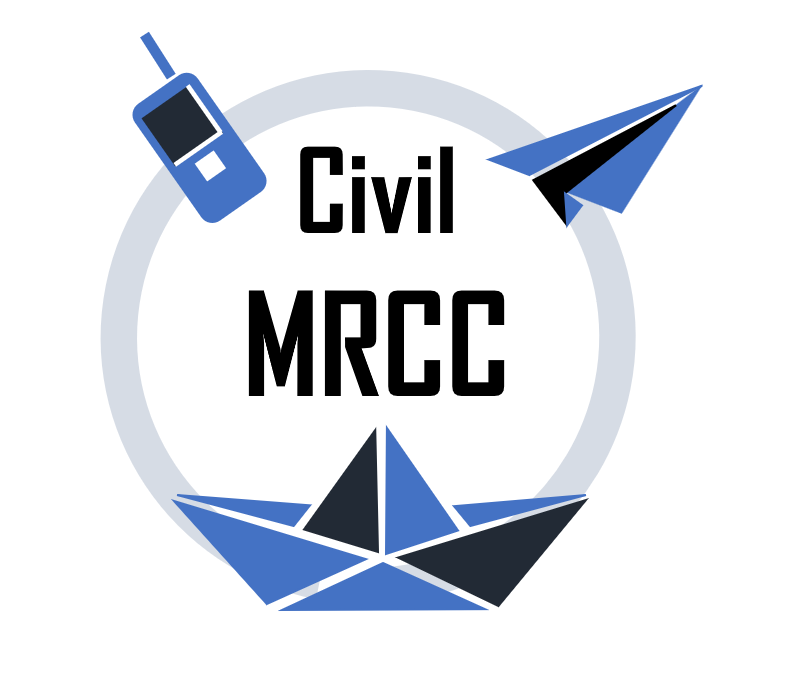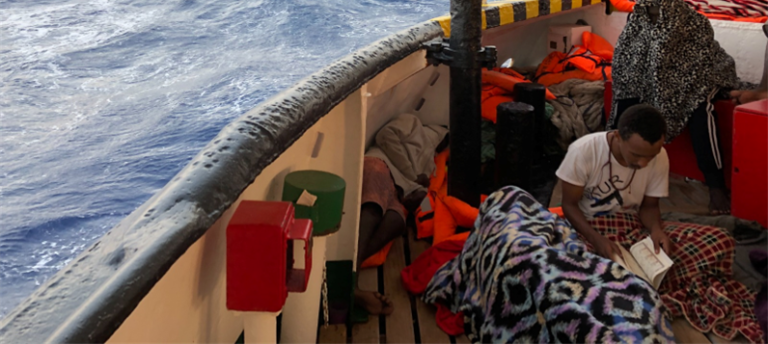Francesca Bocchini, EMERGENCY
On 6 November 2023, the Italian government signed a Memorandum of Understanding with Albania to enhance bilateral cooperation on migration matters. Albania has committed to devote areas of its own territory to the establishment of facilities fully managed and financed by Italy. These areas are considered as Italian border zones and fall within the Italian jurisdiction.
By means of this agreement, two facilities – with a maximum capacity of 3,000 people – will become operational: one located at the port of Shengjin[1] to carry out initial reception and screening procedures to identify vulnerable migrants who cannot be subjected to border procedures, in line with the hotspot model[2]; the other located in Gjader to conduct asylum border and return procedures, like in holding centers for repatriation in Italy[3].

The ratification process
Upon the signature of the Protocol, the Italian government announced that a ratification law was not necessary based on article 19 of the 1995 Treaty of Friendship and Cooperation between Italy and Albania. The mentioned article, however, provides for agreements to regulate only Albanian migration to Italy. Reference to this treaty were not deemed sufficient to avoid a resolution of the Italian Parliament, in accordance with Article 80 of the Italian Constitution.
Thanks to the pressure made by opposition parties and CSOs, the government drafted a ratification law, which was approved by the Chamber of Deputies on 25 January[4] and by the Senate on 15 February[5]. Although a proper legislative process was restored, the process that led to the ratification marks an example of the government’s intention to bypass Parliamentary scrutiny and to manage migration as an emergency and highly political issue.
On the Albanian side, the ratification was temporarily halted by the Albanian Constitutional Court. The Protocol was judged to be “in line with the Constitution”[6] on 29 January. The Albanian Parliament approved the ratification of the Protocol on 22 February[7].
Fundamental rights concerns
This agreement poses serious doubts about the application of EU law in a third country, and severely lowers protection standards, with special reference to detention and reception, as well as the right to asylum, the right to defense and the prohibition of refoulement.
According to the High Commissioner for Human Rights at the Council of Europe, Dunja Mijatovic, the Protocol “raises a range of important questions on the impact that its implementation would have for the human rights of refugees, asylum seekers and migrants. These relate, among others, to timely disembarkation, impact on search and rescue operations, fairness of asylum procedures, identification of vulnerable persons, the possibility of automatic detention without an adequate judicial review, detention conditions, access to legal aid, and effective remedies. The MoU creates an ad hoc extra-territorial asylum regime characterized by many legal ambiguities. In practice, the lack of legal certainty will likely undermine crucial human rights safeguards and accountability for violations, resulting in differential treatment between those whose asylum applications will be examined in Albania and those for whom this will happen in Italy”[8].
Although Ursula Von Der Leyen praised the Protocol, qualifying it as “out-of-the-box-thinking”[9], it has paved the way for an erosion of the common asylum system and for the application of different standards of protection by European Member States.
Instead of investing in the harmonization of European standards, the enhancement of the reception and inclusion system in Italy or the reinforcement of search and rescue capacity in the Mediterranean, the political choice is – once again – to devote substantial resources to border externalization and deterrence. According to the Italian ratification law, costs resulting from the Protocol could exceed 600 million euros from 2024 until 2028. This is a relevant investment that will come with a human price. Building on previous experiences, these measures will prove to be ineffective and cause more suffering and human rights violations for people on the move.
Impact on SAR operations and the shipwreck
According to article 4.4 of the Protocol, its application will be limited to people rescued in the Mediterranean by Italian naval assets. This will hence exclude the involvement of NGOs assets. However, it will have the effect of normalizing two concerning practices and create a dangerous precedent for search and rescue operations: faraway ports and selective disembarkations.
The assignment of distant ports had so far interested humanitarian vessels and was based on the alleged overstretch of the reception facilities and ports in the southern regions of Italy. As SAR NGOs, we have denounced this discriminatory practice, which aims to reduce the presence of SAR vessels at sea and affect the financial sustainability and efficacy of SAR operations, diverting funds from rescue operations to unnecessary navigation costs.
The same considerations – fewer available assets and inefficient resource allocation – would apply to Italian naval assets and will have an impact on survivors. Reaching distant ports in fact results in exposing rescued people on board to poor weather conditions, the risk of re-traumatization and the possible deterioration of their already vulnerable conditions, due to a long and unjustified navigation. It also implies that access to basic services, such as medical care and mental health support, is unduly postponed.
Neither the Protocol nor the ratification law explicitly state that vulnerable people are not subject to detention or repatriation. Likewise, no details are available regarding the practical implementation of vulnerability assessments.
In an interview, the Italian Deputy Minister of Foreign Affairs explained that “following the intervention of the Italian authorities, an immediate verification of migrants at sea should be carried out on vessels at the disposal of the Italian state, in order to identify foreigners who prima facie should be eligible for the facilities in Albania. In fact, vulnerable people would be excluded, namely: minors, unaccompanied minors, the disabled, the elderly, women, single parents with minor children, victims of human trafficking, people with serious illnesses or mental disorders, people for whom it is established that they have been subjected to torture, rape or other serious forms of psychological, physical or sexual violence, and victims of genital mutilation. After screening at sea, individuals deemed vulnerable will remain on board to be taken to Italy.”[10]. In short, selective disembarkation and additional journeys for vulnerable people from Albania to Italy would emerge as a prevailing practice.
This is illegitimate because a search and rescue operation is considered to terminate in a place of safety. This means that before disembarkation, all rescued people are equally vulnerable as survivors of a distress case. In fact, international law and guidelines distinguish SAR from non-SAR considerations and provide that: “Any operations and procedures such as screening and status assessment of rescued persons that go beyond rendering assistance to persons in distress should not be allowed to hinder the provision of such assistance or unduly delay disembarkation of survivors from the assisting ship(s).”[11]
UNHCR published its opinion on the matter of processing asylum claims or screening vulnerabilities on board ships and clarified that: “Claims to international protection by rescued persons are best assessed in fair and efficient procedures on dry land, once disembarkation in a safe place has been secured and the immediate needs of rescued people, including those with specific vulnerabilities, have been addressed.”[12]
This Protocol will not help saving lives at sea or improve migration management. It will prolong the stay of survivors on board assisting ships and delay their access to Italian and European soil, in breach of international law and in violation of the human rights of migrants. This is the last frontier of border externalization. What will be next?
[1] Law Decree A.C.1620, p. 15, http://documenti.camera.it/leg19/pdl/pdf/leg.19.pdl.camera.1620.19PDL0068550.pdf
[2] Law-decree 25 July 1998, n. 286, article 10 ter, https://www.normattiva.it/uri-res/N2Ls?urn:nir:stato:decreto.legislativo:1998-07-25;286
[3] Law-decree 25 July 1998, n. 286, article 14, https://www.normattiva.it/uri-res/N2Ls?urn:nir:stato:decreto.legislativo:1998-07-25;286
[4] Camera dei Deputati, https://temi.camera.it/leg19/provvedimento/protocollo-italia-albania-in-materia-migratoria.html
[5] ANSA, Ok definitivo del Senato all’accordo Italia-Albania, https://www.ansa.it/ansamed/it/notizie/rubriche/politica/2024/02/15/ok-definitivo-del-senato-allaccordo-italia-albania_e6ef1bec-b58e-485e-a399-0599295941f1.html
[6] AP news, Albania’s Constitutional Court says migration deal with Italy can go ahead if approved, https://apnews.com/article/migrants-albania-italy-deal-constitutional-court-d097afbc6e85ca41f2924a1a0ea07422
[7] Euronews, Albanian parliament approves controversial deal to hold migrants for Italy, https://www.euronews.com/2024/02/22/albanian-parliament-approves-controversial-deal-to-hold-migrants-for-italy
[8] Council of Europe, Italy-Albania agreement adds to worrying European trend towards externalising asylum procedures, https://www.coe.int/it/web/commissioner/-/italy-albania-agreement-adds-to-worrying-european-trend-towards-externalising-asylum-procedures
[9] AP news, Top EU official lauds Italy-Albania migration deal but a court and a rights commissioner have doubts, https://apnews.com/article/eu-italy-albania-migration-asylum-rescue-court-91a92ebe5a0ea0e4273609a7ad0eed47
[10] Askanews, Italia-Albania, esame sprint. Governo: screening migranti in mare, https://askanews.it/2024/01/16/italia-albania-esame-sprint-governo-screening-migranti-in-mare/
[11] MSC Resolution 167(78), 2004, paragraph 6.20
[12] UNHCR, Legal considerations on the roles and responsibilities of States in relation to rescue at sea, non-refoulement, and access to asylum, https://www.refworld.org/policy/legalguidance/unhcr/2022/en/124184



